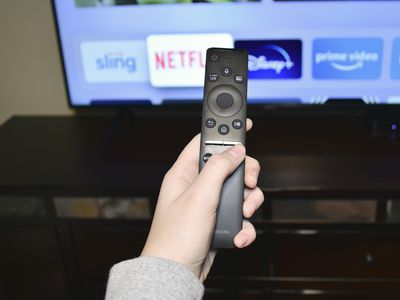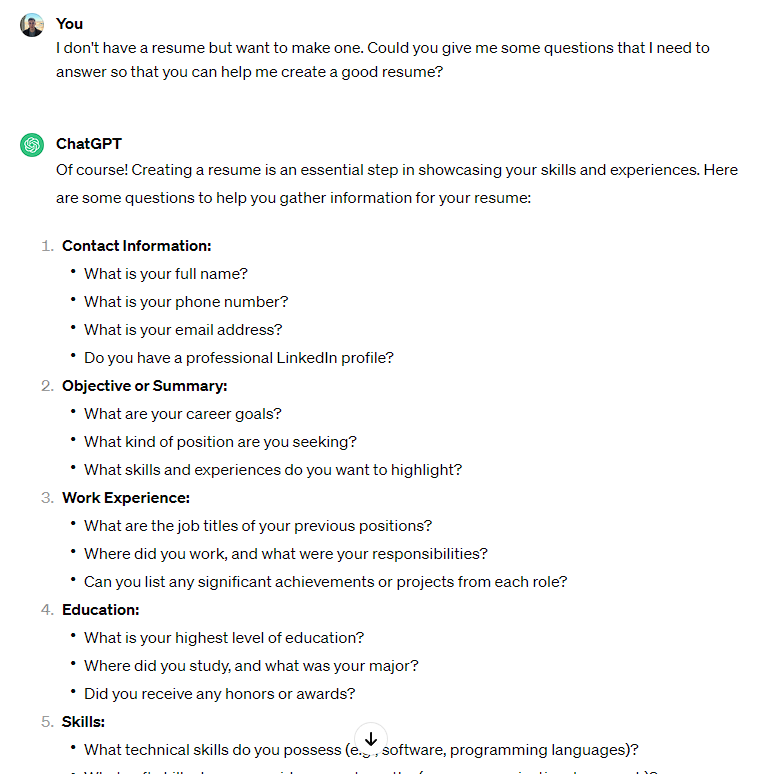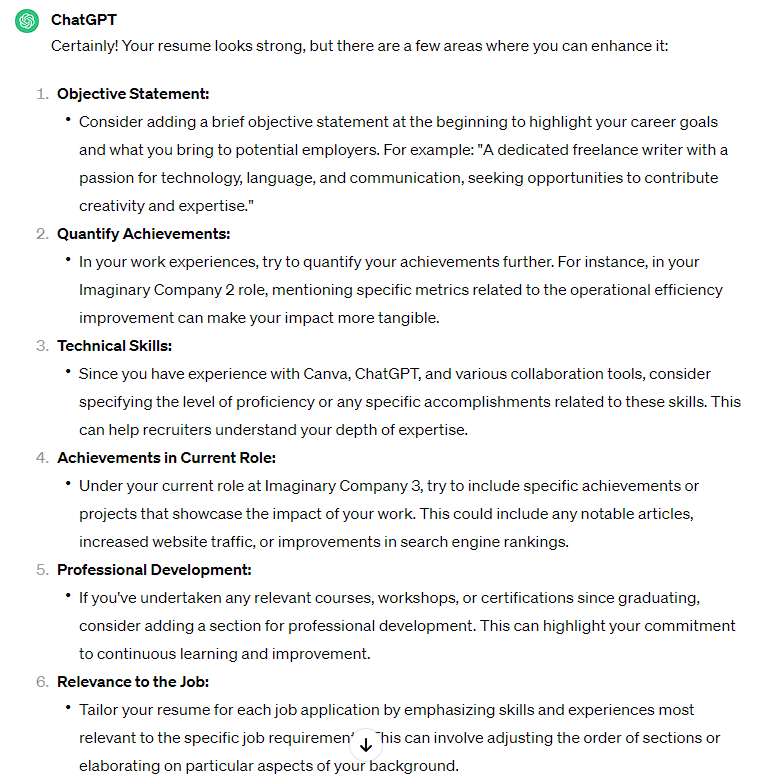
AI-Generated Job Applications: The Pros, Cons & Ethical Dilemma

AI-Generated Job Applications: The Pros, Cons & Ethical Dilemma
Quick Links
- AI Is Shockingly Good at Creating Cover Letters and Resumes
- Is It Wrong to Use AI for Your Cover Letter and Resume?
- How to Use AI to Create Top-Notch Cover Letters and Resumes
- Some Companies Use AI Detection Tools to Scan Cover Letters
Key Takeaways
- ChatGPT can create decent resumes & cover letters from scratch and with minimal input.
- ChatGPT might create falsehoods based on the job posting you show it, so make sure to delete the inaccuracies.
- You can use ChatGPT to refine and improve personalized resumes and cover letters for job applications.
If you’re on a job hunt, you know how tedious and time-consuming it is to write cover letters for every single job posting. Enter ChatGPT—it can save you countless hours by tailoring your resume and cover letter for each job application in just a few seconds. However, is there a catch?
AI Is Shockingly Good at Creating Cover Letters and Resumes
Cover letters and resumes have a general layout and style that you should follow to come across as professional. ChatGPT can perfectly emulate that standardized style because it was trained on large amounts of data, which also includes thousands of cover letters and resume examples.
It knows all the patterns that make for a good cover letter or resume, and it’ll apply those language patterns to your information to help you conform to standard job application forms.
All you have to do to create a half-decent cover letter or resume is give ChatGPT some information to work with. The recently added “Memory” feature , coupled with the “Custom Instructions“ function, helps ChatGPT understand you and your writing style.
Still, you don’t even have to use those features to create a resume or cover letter—just give ChatGPT some information relevant to your experience and ask politely . For example, you can copy-paste your current resume and a job posting and then ask it to create a cover letter based on the provided information.
Don’t have a resume? Don’t fret. You can ask ChatGPT to define a few important questions to help you create your first resume or use it to refine your existing one. Here’s an example showing key pieces of information that should be in your resume:

Remember, your resume is a concise summary of essential personal information, your greatest achievements, relevant skills, and not much else. Even human-written resumes sound pretty robotic, so the results are more or less in line with the norm. For instance, I told ChatGPT to create a resume and gave it very little information to work with, and here are the results:
Close
The reason why it knows about my hobbies is that I added them to “Custom Instructions.” That being said, the experience, skills, and overall format are all ChatGPT’s doing. While it’s not an impressive resume by any means, it’s way more than I expected considering how little information I gave it.
As for cover letters, the same general principles apply. It can easily turn a few sentences about your experience and a vague job description into a generic cover letter. Let’s continue where we left off with our “resume” from above and write a cover letter for an imaginary job ad:
Close
While it sounds as if a middle-schooler wrote it using a template, and you can’t expect to land a half-decent job with something like this, it’s a decent start. The most important information is at the top, the format is tidy, and ChatGPT even tried to establish a link between my relevant experience and the job requirements. I’ll show you a few tricks and tips on how to make an outstanding resume and cover letter shortly.
Is It Wrong to Use AI for Your Cover Letter and Resume?
The real question here is whether it’s ethical to use AI for job applications. The main argument against AI-generated cover letters and resumes is that AI is prone to lying .
You see, much like humans, ChatGPT wants (you) to land the job, so it’ll say that you possess the required skills and experience, even if you haven’t actually done any of that. For instance, if a job posting has “Proficient in graphic design tools such as Canva,” ChatGPT will say that you’re a Canva expert in the cover letter, even if you’ve never used it. This happened to me on every single cover letter I created.
The flip side of this argument is that cover letters and resumes follow a highly formulaic structure. Using ChatGPT to assist you shouldn’t significantly affect the outcome of your application as long as you’ve verified the information to be 100% true. Applicants have to send out an average of 100–200 job applications before they land a job, so ChatGPT speeds the process up quite a bit.
The worst part is that some recruiters won’t even read your cover letter but will instead focus on your answers to the application questions. I briefly worked as a recruiter myself, and I’d only read a cover letter when I was on the fence. In such instances, the cover letter is there merely as a supplementary document that satisfies hiring norms. Ultimately, it’s up to you to decide whether it’s okay to use ChatGPT for your cover letter and resume. If you opt to use it, carefully proofread everything to make sure that there are no lies or half-truths in your job application.
How to Use AI to Create Top-Notch Cover Letters and Resumes
I’ve shown you earlier how it’s pretty easy to create a basic cover letter and resume with ChatGPT, but if you want to land a half-decent job, you’ll still have to do some parts yourself. You might have heard the phrase “garbage in, garbage out,” and the rule applies here as well. The trick to generating a good cover letter and resume with ChatGPT is to create the first draft yourself. In the case of a resume, write as much relevant information as you can about your skills and past work experience before handing it over to ChatGPT to process the data. Here’s a quick example I came up with on the spot:
Close
This is still pretty basic, as I haven’t given ChatGPT enough information to work with, but it’s serviceable. You can now ask it to identify gaps and help you improve the resume in general to make it even better. It’ll give you actionable feedback you can implement immediately to improve your resume.

You can use these same general principles to create a killer cover letter as well. You can go back and forth with ChatGPT until you land on something that you like. You can treat ChatGPT the same way you’d treat a resume consultant. Once you’re done generating, first make sure there are no errors in the text. After that, add some personal flair to make sure you stand out from other applicants.
Remember, other applicants also have access to ChatGPT and have likely used it to apply for the job, so you really need to make your cover letter unique and compelling to get hired. Pay particular attention to the first few paragraphs, as they can let your personality shine through the most. Also, note that some sections will probably sound robotic and “fake,” so get rid of them.
Some Companies Use AI Detection Tools to Scan Cover Letters
Companies that care about whether you use AI to write your cover letter will scan it using AI detector tools. The tool can identify and flag text that sounds robotic based on patterns AI tools use.
However, these tools aren’t perfect and will occasionally flag human-written text as AI as well, so your cover letter would get rejected anyway. This further underscores my point above that you must find a way to make your cover letter original, at least to some extent.
If you haven’t tried ChatGPT on your resume yet, I strongly encourage you to do so now. Consult with ChatGPT to make your resume polished, compelling, and concise. Also, don’t forget to use ChatGPT to make “bange”r cover letters by tailoring them to specific job postings and maximize your chances of getting hired while also saving time. Once you get used to your AI career advisor, you’ll find it hard to apply to jobs the traditional way.
Also read:
- [New] Transforming Brand Stories with Client-Produced Testimonials
- [New] Ultimate Speedy Pics Viewing Tool
- [Updated] 2024 Approved Advanced Tools for Efficiently Converting XML/SSA/TTML to SRT
- [Updated] The Ultimate Blueprint for SRT File Excellence
- 2024 Approved Top-Rated Sony A7S II Memory Accessory
- Earning Money by Using Microsoft's Bing - A Personal Experience of Successful Rewards
- Error Code #6 in Divekick or Modern Warfare (PC) Now Fixed: A Comprehensive Guide
- Expert Review on the Robust and Efficient Kootek Computer Cooler for Optimal Performance
- In 2024, Best Ways on How to Unlock/Bypass/Swipe/Remove Realme 10T 5G Fingerprint Lock
- In 2024, Quick Connectivity IPhone Images to Windows
- The Art of YouTube Management by Studio Techniques for 2024
- Ultimate Selection 8 Preferred MP3 Grabbers (Android) for 2024
- Unlocking an iCloud Locked iPad and Apple iPhone 14 Pro Max
- Title: AI-Generated Job Applications: The Pros, Cons & Ethical Dilemma
- Author: Christopher
- Created at : 2025-01-02 17:54:30
- Updated at : 2025-01-09 23:58:49
- Link: https://some-approaches.techidaily.com/ai-generated-job-applications-the-pros-cons-and-ethical-dilemma/
- License: This work is licensed under CC BY-NC-SA 4.0.